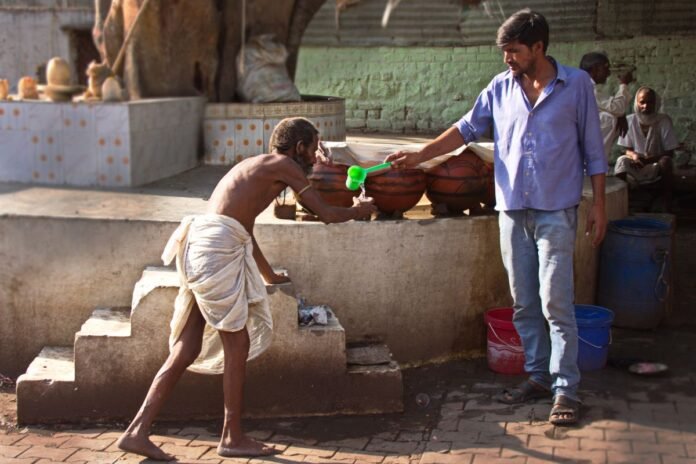An interesting analytical review appeared in the latest issue of the journal Social Sciences and Humanities. It was written by Daria Petrukhina from the Institute of Scientific Information for Social Sciences of the Russian Academy of Sciences. She analyzed the history and modern life of the untouchables.
iStock
Human behavior is still influenced by the hierarchy that developed more than 3,000 years ago.
The subject of the Russian scientist’s research was the social structure of Hindu societies in South Asian countries. The author of the work notes that since ancient times it has been based on a caste system, closely related to the religious views of Hindus.
“However, even those peoples who, in the course of historical development, adopted other religions, continue to follow caste customs,” the publication says, “in this situation, representatives of the lowest castes, the untouchables, are subject to social exclusion and systematic discrimination.”
According to the author, there are virtually no mechanisms for advancement to higher castes in Hinduism. Untouchables are therefore deprived of the opportunity to raise their social status, which negatively affects their identity.
“Modern theoretical and practical research shows that although untouchables are still considered to be low-value members of society, modern technologies and international connections give them the opportunity to fight for their rights and identity,” the historian notes.
The division into castes took place gradually during the Rig Vedic period (1500-1000 BC). At first, the castes of Brahmins, Kshatriyas and Vaishyas appeared, and at the end of the period the Shudra caste was added. Of the latter, the “touchables” and the “untouchables” were then distinguished.
By the first millennium BC, castes were already fully aligned with social stratification. Thus, a religious class emerged: the Brahmins. In addition, a managerial class appeared: the Kshatriyas, an economic class: the Vaishyas and a service class: the Shudras.
“It is noteworthy that caste as a socio-cultural phenomenon was preserved even among those peoples who, during their ethnic history, converted to other religions (Telugu in India, Bengalis in Bangladesh, etc.),” the study said.
In pre-colonial times, Brahmanical literature contained a large number of derogatory names for untouchables: “wicked”, “filthy”, “discreet”, “low-born”, “untouchables”, etc. They were often named simply by their geographical location or main occupation.
“These identities were constructed by the upper castes and had nothing to do with the self-awareness of the untouchables,” says the author of the work. “Since the main meaning of life for the untouchables was service to others, the representatives of these castes lived, so to speak, a double life: for others and for themselves.”
Later, the caste system spread across the world along with immigrants from Hindu countries. Today, castes remain a source of humiliation for the untouchables, but on the other hand, they have contributed to the creation of a strong community of like-minded people fighting for their rights.
“Modern research shows how firmly the caste system is embedded in Hindu society and in the consciousness of almost all its members,” writes Daria Petrukhina.
Despite the level of development of the modern world, human behavioral strategies are still influenced by the hierarchy that emerged more than 3,000 years ago.”
According to her, today untouchables have the opportunity to leave a narrow social circle and achieve success, but for them this means leaving their homeland and abandoning their roots. Until there is a fundamental change in people’s consciousness, untouchables will live in a contradiction between their own identity and the rejection of it.

